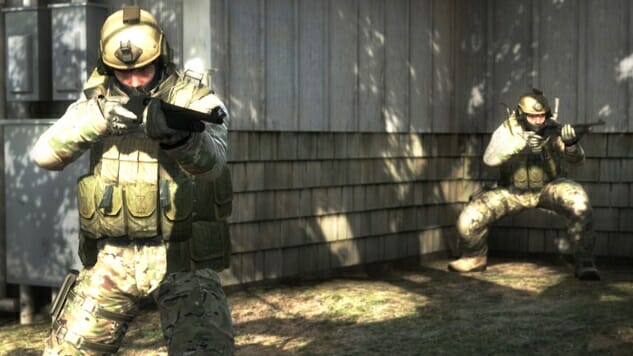The conversation around gun control and mental health continues to ignite both sides of the aisle following the shooting deaths of 17 students at Marjory Stoneman Douglas High School last week. Multiple opponents of strengthening current gun legislation have recently claimed violent videogames and other forms of media as a cause of the Parkland shooting and another school shooting in Benton, Ky. last month, though similar claims made in the past have been exposed as untrue.
Following the claims of disgraced attorney Jack Thompson, NRA-supported Kentucky Gov. Matt Bevin and President Trump, Rhode Island State Rep. Robert Nadolillo is planning to introduce legislation that would impose an additional 10-percent sales tax on the purchase of videogames rated Mature or higher in the state of Rhode Island. The income accrued through this extra tax, according to Nadolillo’s proposal, would be funneled into a special account that would provide funding for “counseling, mental health programs, and other conflict resolution activities.”
Nardolillo believes that the extra funds would “give schools the additional resources needed” to deal with students who “act more aggressively” due to exposure to violent videogames. “By offering children resources to manage their aggression today, we can ensure a more peaceful tomorrow,” said Nardolillo.
The desire to expand treatment for those suffering with mental illness is commendable, but Nardolillo’s claim that “there is evidence that children exposed to violent videogames at a young age tend to act more aggressively than those who are not” has been consistently disproven over the past 25 years. As recently as 2014, psychology researcher Christopher Ferguson suggested there is no correlation between violent media and real-life violence, and urged lawmakers to stop blaming videogames and media. “There is a risk that identifying the wrong problem, such as media violence, may distract society from more pressing concerns such as poverty, education and vocational disparities and mental health,” said Ferguson.
Effectively gating off artistic works financially would not look good to game developers, publishers or consumers, as well. Videogames were recognized as protected speech in 2011 and have full protection under the First Amendment, as well. In that 2011 ruling, the U.S. Supreme Court also decided not to extend the definition of “obscenity” to include violence depicted in videogames, effectively disabling states from regulating videogames based on violent content, which is pretty close to what Nardolillo is suggesting with his plan.
Narodillio’s plan in its current state represents a suppression of gamemakers’ First Amendment rights, and, as it clearly states in the 2011 U.S. Supreme Court majority decision, “Speech that is neither obscene as to youths nor subject to some other legitimate proscription cannot be suppressed solely to protect the young from ideas or images that a legislative body thinks unsuitable for them.”
